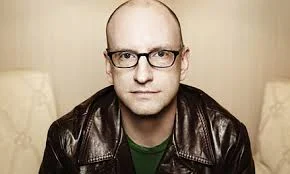What's going on with John Green and his Why I'll Never Self Publish (and Sue Grafton's Self-Publishing is a Short-cut, a while back, for which she made a gracious apology), and all the rest? Both authors expressed opinions that sent shockwaves of anger and activity across the blogosphere as indie authors fumed.
I live in Hollywood (more or less) and I have a slightly different take on the matter. For most of the last sixty years there have been two communities in Hollywood. The studios (MGM, Paramount, etc.) and the independents (Roger Corman, Jim Jarmusch, etc.)
Indie Hollywood
The studios — big, corporate Hollywood — have always known they were investing a lot of money in mass entertainment. Emblematic of that system was MGM studio boss Louis B. Mayer who only wanted to make “crowd pleasers.” But there were always some independents that felt the big studios weren't serving the interests of particular groups.
A good example is horror fans. The big studios had made a few horror movies with literary pedigrees (Frankenstein, Dracula) but no studio would finance anything as “sick” as Night of The Living Dead (1968.) Indie George Romero made his ur-text zombie movie for die-hard horror fans for $US114,000. It struck a nerve, became a classic, and has since earned over forty million dollars, while also spawning countless rip-offs and a “zombie meme” that continues to spread like a virus.
We indie authors have the choice and the power to follow our own vision of what we'd like to see on the page.
I don't have to try to write a crowd pleaser. I can work to connect with hundred thousand fans on the internet with similar tastes. The internet enables this kind of “fan-fiction-clustered-around-
Restrictions of the Studio System
Now it is true, that in the history of Hollywood many independent filmmakers yearned for a bigger budget and wanted to go make a big “studio picture.” The indie-director imagined how great it would be to have a star trailer with their name on the door and an assistant to wipe their brow, as authors imagine the ease of having powerful agents and publishers.
But there were always big talents in Hollywood that chaffed under the restrictions of the studio system and wanted “artistic freedom.” The latest of these talented individuals to announce that he will make no more studio movies is Steven Soderbergh.
In April 30 of this year gave a speech where he said: “(Independent) cinema is a specificity of vision. It’s the polar opposite of generic or arbitrary and the result is as unique as a signature or a fingerprint. It isn’t made by a committee, and it isn’t made by a company. It means that if this (author) didn’t do it, it wouldn’t exist at all.”
I say: take advantage of your personal unique indie vision as an author, be it horror, thriller, romance, Western, detective, historical fantasy, or whatever. Being indie is not a liability, it's empowering.
The full unedited text of Soderbergh's speech is here: http://www.deadline.com/2013/
04/ steven-soderbergh-state-of-cine ma-address/ What do you think? Why are you indie? Or not?





I am really loving the theme/design of your weblog.
Do you ever run into any browser compatibility problems?
A couple of my blog readers have complained about my blog
not operating correctly in Explorer but looks great
in Chrome. Do you have any suggestions to help fix this issue?
Soderbergh’s an interesting one, isn’ty he? I was a student in the late 80s/early 90s and my recollection is that he was almost single-handedly responsible (so it felt at the time) for propelling US indie cinema into the public consciousness – before sex, lies and viideotape, those of us who wanted something non-studio would head to the local art cinema and watch something continental European, maybe mixed in with an occasional season of early Woody Allen. After sex, lies and videotape, suddenly the US was aware of what it could do, and the next few years saw the likes of a resurgent Robert Altman and a newly respectable David Lynch and Jim Jarmusch being feted rather than marginalised, and a whole generation of directors called Anderson along with the likes of Darren Aronofsky, the Coens and Spike Jonze and of course Tarantino and Rodriguez. That’s how it felt in the UK anyway, where we also had a resurgence after the massive studio collapses of teh 70s/80s, led by Mike Leigh and Ken Loach.
The book world is slow to get to that situation. One of the things that helped films do it was teh festival circuit – it was the recognition of sex, lies and videotape at Cannes, followed almost back to back by Wild at Heart, Barton Fink, and Reservoir Dogs, that I would say, looking back, propelled US indie cinema into the mainstream British consciousness, and it has been kept there in recent years by the stirling efforts of Sundance. The literary world lacks this kind of infrastructure as yet – that’s one reason I feel so strongly about the Open Up to Indies campaign, because I’ve seen how maverick voices from the mainstream can help the indie scene in the film world, and why I have been shouting so loudly about the Folio Prize opening up to self-publishers. We need our sex,lies & videotape or Reservoir Dogs or El Mariachi and at the moment I don’t see them
Well said! And there is no valid reason in my view for the mud slinging that published authors and some publishers have engaged in of late. So there are 20% of sales going to independents? Oh no, the big highly paid publishers might have to try a bit harder to earn their considerable crust, how terrible. Get over yourselves people. If your work is great (and in many cases it is) what do you care if other people are trying and some succeeding as independents?
Vive la difference!